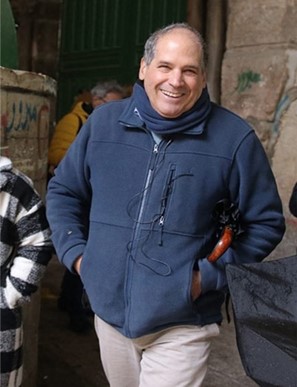The Crusades Regesta has been a hundred and thirty years in the making. Historians Jonathan Riley-Smith and Ronnie Ellenblum built on Reinhold Röhricht’s foundations, assembling a team of experts to update Röhricht’s records with newer findings and modern scholarship.
The Regesta regni Hierosolymitani (Innsbruck, 1893) is yet another of Röhricht's major works; it presents the summaries of 1,519 documents and letters written in the Frankish Levant between 1097 and 1292 or sent there from Europe. In his introduction, Röhricht expressed the hope that the book would do for the history of the Kingdom of Jerusalem what the Gesta Imperii by Johann Friedrich Böhmer (1795-1863) had done for the history of the medieval Empire. He explained that his summaries are in Latin, not so much because most of the documents and letters are in that language but for the reason that in many cases the terms appearing in them could not be adequately translated into another tongue. Röhricht compiled also most useful indices of names, places and topics, and added a glossary. In 1904, a year before his death, he published a companion volume, Additamentum; it contains further documents or re-edited ones that came to his knowledge in the meantime. The Regesta regni Hierosolymitani and the Additamentum became almost immediately an indispensable tool of research for students of the Frankish Levant. They were reprinted by Burt Franklin in 1960. - Benjamin Z. Kedar
Jonathan Riley-Smith (1938-2016) was the Dixie Professor of Ecclesiastical History at Cambridge University from 1994 until his retirement in 2005. He had previously worked at the universities of St Andrews and Royal Holloway, University of London.

One the world’s foremost historians of the crusades, Riley-Smith has addressed three basic issues concerning the crusades: the definition of a crusade; the motives of crusaders; and the establishment and rule of the western settlers in the Holy Land. Among his many publications are The Feudal Nobility and the Kingdom of Jerusalem, 1174-1277 (Archon Books, 1973); What were the Crusades? (1977, fourth edition, Palgrave Macmillan, 2009); The First Crusade and the Idea of Crusading (University of Pennsylvania Press, 1986) and The First Crusaders, 1099-1131 (Cambridge University Press, 1996). Riley-Smith was a leading authority on the history of the Military Orders, most especially the Knights of St John (the Knights Hospitaller), through The Knights of St John in Jerusalem and Cyprus, c 1050-1310 (1967) and The Knights Hospitaller in the Levant c.1070-1309 (Palgrave Macmillan, 2012).
Riley-Smith was a co-founder of the Society for the Study of the Crusades and the Latin East (1980), the foremost international organization for scholars in the field; was Editor-in-Chief of the Society's Journal Crusades (2002-2016), originated the international conference on the history of the Military Orders, first held in 1992, and has supervised almost 30 doctoral students. In the early 2010s he started the ambitious project of updating and expanding Röhricht's Regesta.
 Ronnie Ellenblum (1952-2021) was a professor of Historical Geography at the Hebrew University of Jerusalem. He straddled several academic disciplines – history, geography, geology and archaeology, with a focus on the Middle Ages and the medieval Mediterranean. He was the author of Frankish Rural Settlement in the Latin Kingdom of Jerusalem (Cambridge University Press, 1998), Crusader Castles and Modern Histories (Cambridge University Press, 2005), and The Collapse of the Eastern Mediterranean: Climate Change and the Decline of the East, 950–1072 (Cambridge University Press, 2012).
Ronnie Ellenblum (1952-2021) was a professor of Historical Geography at the Hebrew University of Jerusalem. He straddled several academic disciplines – history, geography, geology and archaeology, with a focus on the Middle Ages and the medieval Mediterranean. He was the author of Frankish Rural Settlement in the Latin Kingdom of Jerusalem (Cambridge University Press, 1998), Crusader Castles and Modern Histories (Cambridge University Press, 2005), and The Collapse of the Eastern Mediterranean: Climate Change and the Decline of the East, 950–1072 (Cambridge University Press, 2012).
At the time of his untimely passing in January 2021, he was finishing his fourth monograph with the working title Fragility. This book offers a new paradigm to study the effects of climate on the history of civilizations. An original, vivacious and ambitious scholar, Ronnie initiated several important projects such as the digital archive of maps, illustrations and texts related to the history of Jerusalem. In 2014 he convinced Jonathan Riley-Smith to turn his revised Regesta into a searchable database and facilitated its online publication; the website was first launched on 15 August 2016.

